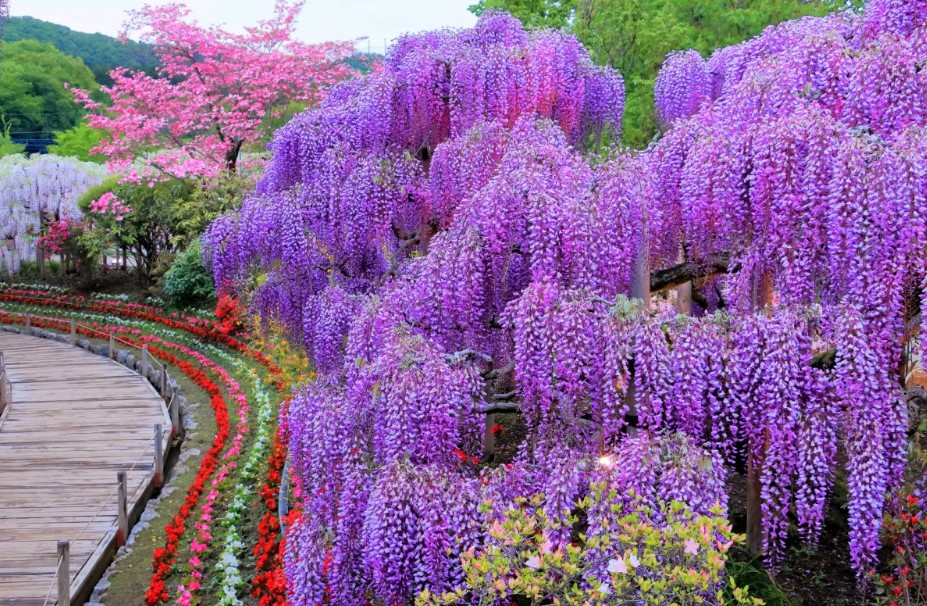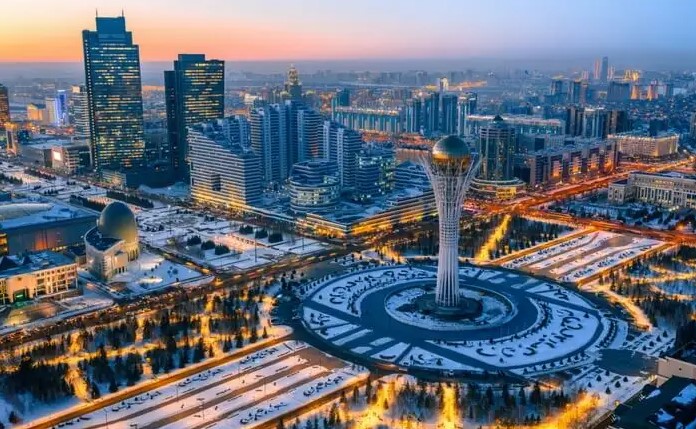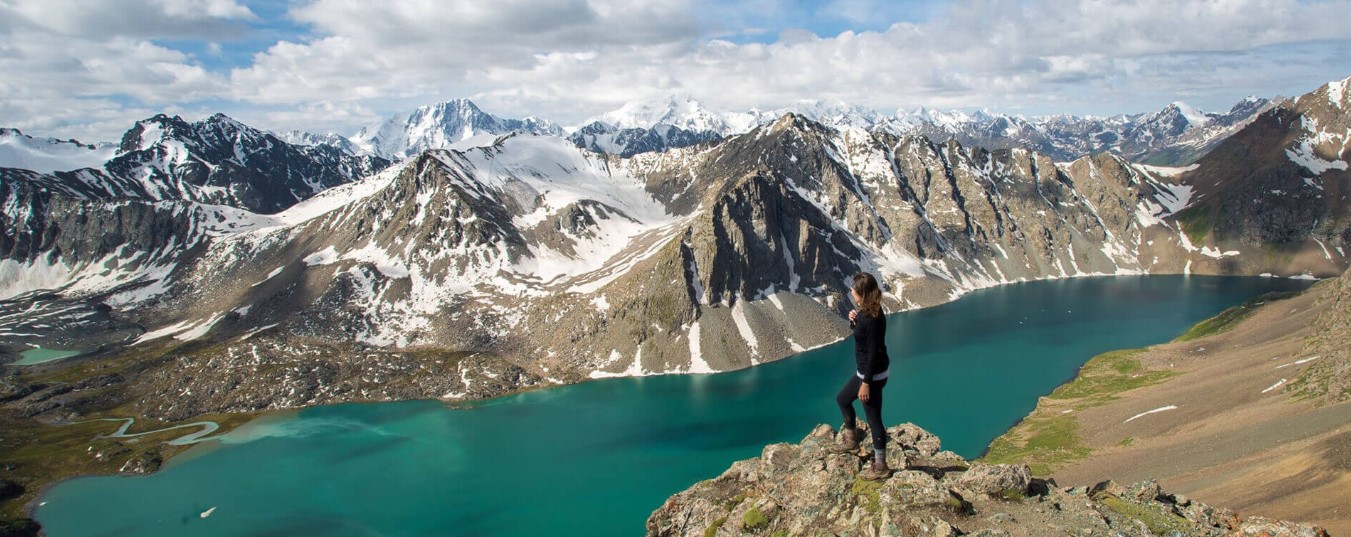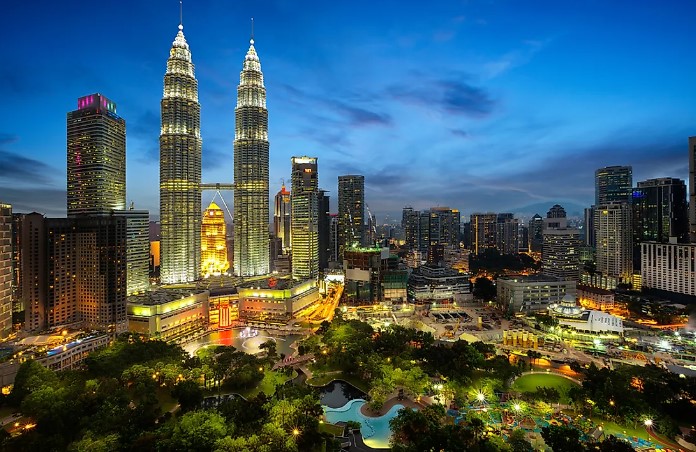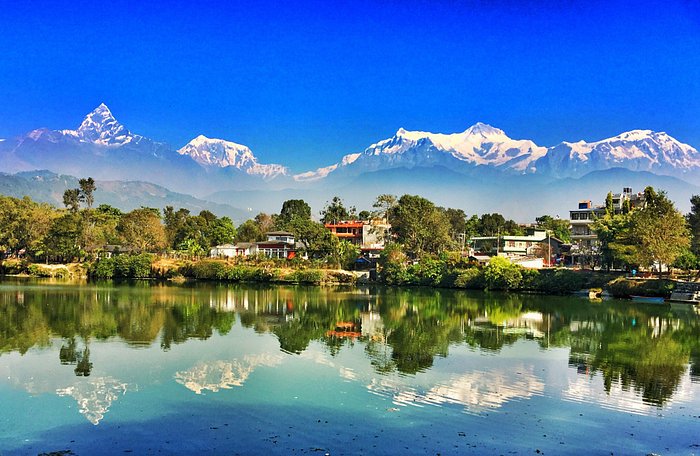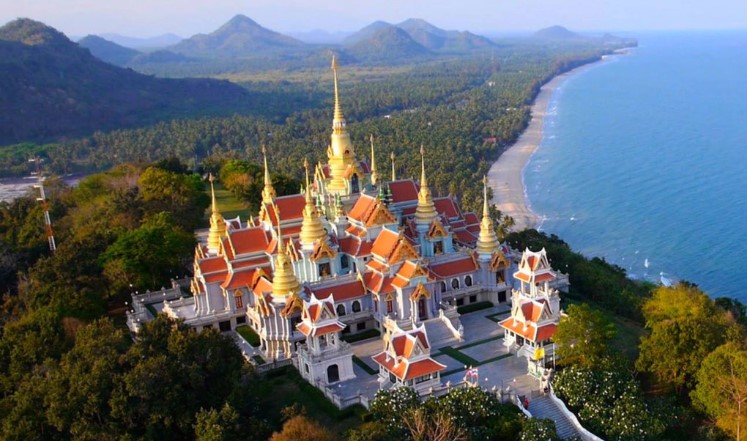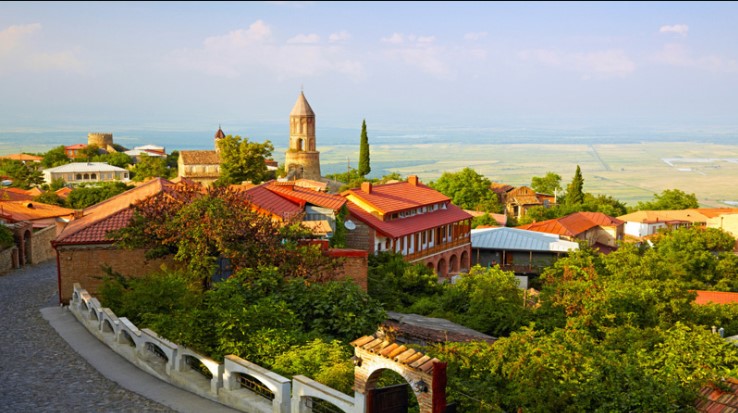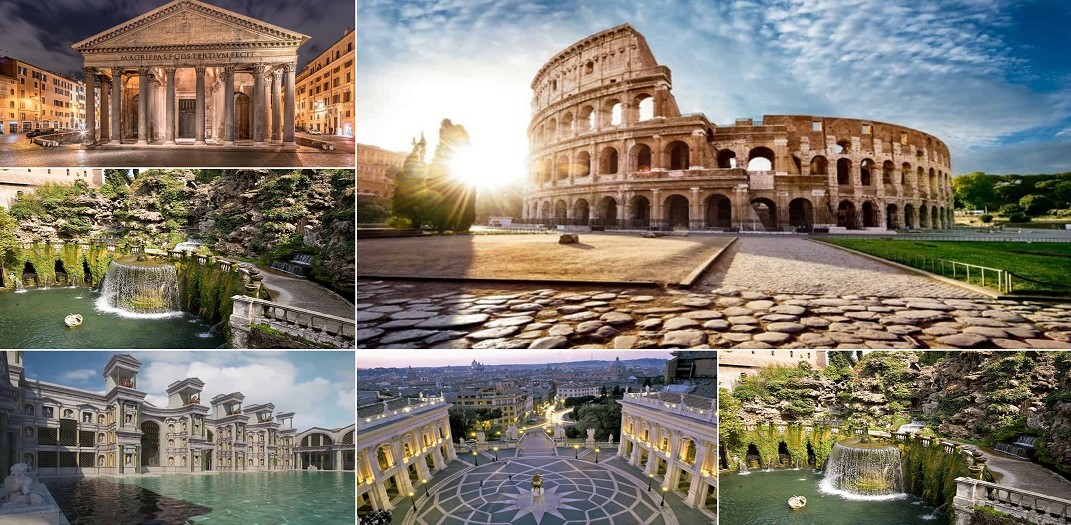Places to Visit in South Korea
Tourist Places & Attractions
Explore the top 25 places to visit in South Korea, including the most captivating tourist places and attractions. Get insights into this vibrant country's rich culture, breathtaking landscapes, and historical wonders. Are you dreaming of exploring the vibrant culture, picturesque landscapes, and delicious cuisine of South Korea?
Planning a trip to this East Asian gem requires thoughtful preparation to ensure you have a seamless and enjoyable experience. Whether you're a seasoned globetrotter or a first-time traveler, this article will equip you with the knowledge and confidence to embark on an unforgettable adventure in South Korea.
South Korea, a land of rich traditions, technological advancements, and stunning natural beauty, has become a popular tourist destination in recent years. From vibrant cities to serene countryside, South Korea offers a plethora of attractions that cater to all kinds of travelers. Whether you are an adventure enthusiast, a history buff, or a food lover, this article will take you on a virtual journey to discover the 25 best places to visit in South Korea. So, pack your bags and get ready to explore this enchanting country!
1. Seoul - The Capital Marvel
Seoul, the bustling capital of South Korea, is a city where the ancient meets the modern. From the majestic Gyeongbokgung Palace to the futuristic Dongdaemun Design Plaza, Seoul boasts an eclectic mix of cultural landmarks and contemporary architecture. Explore the vibrant markets, relish the mouthwatering street food, and witness the picturesque Han River cutting through the city.
2. Jeju Island - Nature's Paradise
Nestled off the southern coast, Jeju Island is a volcanic wonderland and a UNESCO World Heritage site. Its breathtaking landscapes include stunning waterfalls, lush greenery, and stunning beaches. Take a leisurely hike up Hallasan, South Korea's highest peak, or visit the unique Loveland, an adult-themed sculpture park.
3. Busan - Coastal Beauty
Famous for its beautiful beaches, bustling fish markets, and vibrant nightlife, Busan is South Korea's second-largest city. Visit Haeundae Beach for a relaxing day under the sun, explore the colorful Gamcheon Culture Village, and take in the panoramic views from the Busan Tower.
4. Gyeongju - Time Travel to the Past
Gyeongju, often referred to as the "museum without walls," is a city steeped in history. It served as the capital of the ancient Silla Kingdom and is now home to numerous archaeological sites and ancient temples. Explore the Bulguksa Temple, visit the UNESCO-listed Seokguram Grotto, and immerse yourself in the rich historical heritage.
5. Incheon - Gateway to South Korea
As the main gateway to South Korea, Incheon offers a mix of modernity and tradition. Wander through Chinatown, experience the vibrant Incheon Fish Market, and take a ferry to the scenic Incheon Islands for a day of relaxation and exploration.
6. Andong - Traditional Hanok Village
Experience the beauty of a traditional Hanok Village in Andong. The Hahoe Folk Village showcases well-preserved Joseon Dynasty architecture, and the Mask Dance Festival offers an immersive cultural experience. Don't miss trying Andong's famous salted mackerel!
7. DMZ - Step into the Unknown
The Demilitarized Zone (DMZ) is a unique and tense border area that separates North and South Korea. Take a guided tour to Panmunjom, the Joint Security Area, and get a glimpse of the isolated North Korean territory.
8. Suwon - The Fortress City
Suwon, located just south of Seoul, boasts the impressive Hwaseong Fortress, a UNESCO World Heritage site. Explore the fortress walls, visit the Hwaseong Haenggung Palace, and enjoy a stroll through Suwon's charming streets.
9. Jeonju - Gastronomic Delights
For food lovers, Jeonju is a culinary paradise. This city is renowned for its delectable bibimbap, a traditional Korean rice dish served with various vegetables and meat. Don't forget to explore the Hanok Village and visit the Jeonju Hanji Museum to learn about traditional paper-making.
10. Sokcho - Gateway to Seoraksan National Park
Sokcho serves as the gateway to Seoraksan National Park, a natural wonderland of rocky peaks, lush forests, and serene temples. Take a cable car ride to Gwongeumseong Fortress, visit the Sinheungsa Temple, and soak in the beauty of South Korea's most famous national park.
11. Gwangju - Artistic Hub
Gwangju, known for its vibrant arts and culture scene, offers a unique experience for travelers. Explore the Asian Culture Complex, visit the May 18th National Cemetery to learn about the Gwangju Uprising, and immerse yourself in the city's artistic ambiance.
12. Daejeon - Science City
Daejeon, dubbed the "Silicon Valley of South Korea," is a city dedicated to science and technology. Visit the Daejeon Observatory, enjoy a relaxing day at Expo Park, and explore the unique educational exhibits at the National Science Museum.
13. Ulsan - Industrial Marvel
Ulsan is a city known for its industrial significance, but it also offers stunning coastal scenery. Visit the scenic Ganjeolgot, the easternmost point of South Korea's mainland, and explore the vibrant Taehwagang National Park.
14. Gangneung - Coastal Charm
Gangneung, located on South Korea's east coast, is a city known for its beautiful beaches and cultural heritage. Explore the traditional Ojukheon House, enjoy the picturesque Jeongdongjin Sunrise Park, and taste the city's famous seafood.
15. Daegu - Dynamic Urban Hub
Daegu, known for its fashion and textile industry, offers a vibrant urban experience. Visit the historic Daegu Yangnyeongsi Herbal Medicine Market, relax in Duryu Park, and shop for trendy fashion in the city's boutiques.
16. Yeosu - Picturesque Coastal Town
Yeosu is a coastal gem with stunning views and a maritime atmosphere. Visit the picturesque Odongdo Island, enjoy the Yeosu Ocean Railbike, and experience the beautiful night view from the Dolsan Bridge.
17. Changwon - Green City
Changwon is an eco-friendly city with a focus on sustainability and green spaces. Explore the scenic Yongji Lake, visit the Masan Fish Market, and take a hike up the iconic Godangbong Peak.
18. Jinju - Lantern Festival
Jinju is famous for its Lantern Festival, an annual celebration held at Jinju Fortress. Learn about the city's historical significance, enjoy the colorful lantern displays, and take part in the vibrant festivities.
19. Suncheon - Ecological Haven
Suncheon is a nature lover's paradise, with its stunning wetlands and ecological parks. Explore the Suncheon Bay Garden, take a boat tour through the Suncheonman Bay, and hike up the Yongsan Observatory for panoramic views.
20. Ansan - Multicultural Melting Pot
Ansan is a multicultural city known for its diverse population and lively atmosphere. Visit the Ansan Wa~ Stadium, explore the Ansan Arts Center, and indulge in a variety of international cuisines.
21. Pohang - Coastal Delights
Pohang, situated on South Korea's east coast, is a city of beautiful beaches and unique attractions. Visit the Homigot Sunrise Square, explore the picturesque Jukdo Market, and enjoy a relaxing day at Bukbu Beach.
22. Gwangyang - Industrial Heritage
Gwangyang, an industrial city with a rich history, offers a mix of tradition and modernity. Explore the Gwangyang Maehwa Village during the cherry blossom season, visit the Gwangyang Steel Mill, and learn about the city's iron and steel heritage.
23. Jecheon - Healing Thermal Springs
Jecheon is famous for its hot springs, offering a perfect retreat for relaxation and healing. Visit the Cheongpung Cultural Heritage Complex, experience the Cheongpung Land amusement park, and take a dip in the therapeutic hot spring waters.
24. Tongyeong - Seaside Escapade
Tongyeong, a picturesque coastal town, is perfect for a peaceful seaside getaway. Explore the Dongpirang Wall Painting Village, take a cable car ride to Mireuksan Mountain, and enjoy fresh seafood at the Tongyeong Jungang Market.
25. Jinhae - Cherry Blossom Extravaganza
Jinhae is renowned for its stunning cherry blossoms that draw crowds from all over the world during the spring season. Visit the Jinhae Gunhangje Festival, explore the romantic Yeojwacheon Stream, and capture unforgettable cherry blossom moments.
5 Tips How to Plan Your Trip to South Korea
1. Research and Itinerary Planning
Start by conducting thorough research about South Korea's diverse destinations, cultural norms, and local customs. Make a list of must-visit attractions, such as the bustling capital city of Seoul, the historic city of Gyeongju, the tranquil island of Jeju, and the scenic Bukhansan National Park. Consider the time of year you'll be visiting as South Korea experiences all four seasons distinctly. Prepare a flexible itinerary that balances iconic landmarks, off-the-beaten-path experiences, and authentic culinary adventures.
2. Budgeting and Currency Exchange
Establish a realistic budget for your South Korean journey, factoring in accommodation, transportation, meals, entrance fees, and shopping expenses. South Korea accepts Korean Won (KRW) as its currency, so research the exchange rates and opt for reputed money exchange services. It's wise to carry both cash and credit/debit cards, as some smaller establishments may only accept cash.
3. Language and Communication
While English is spoken and understood in major tourist areas, learning a few basic Korean phrases can enhance your travel experience and show respect to the locals. Utilize language learning apps or pocket phrasebooks to communicate essential expressions like "hello," "thank you," and "where is the restroom?" Furthermore, ensure your smartphone is equipped with a reliable translation app to overcome language barriers.
4. Accommodation and Transportation
Book your accommodation in advance to secure the best rates and locations. South Korea offers a wide range of lodging options, from luxury hotels to cozy guesthouses. Depending on your travel preferences and budget, choose accommodations that align with your needs. Additionally, South Korea boasts an efficient and extensive transportation system, including high-speed trains, buses, and subways. Consider purchasing a transportation card for seamless travel between destinations.
5. Cultural Etiquette and Respect
Respect for local customs is paramount while visiting South Korea. Bowing is a traditional form of greeting, and it is customary to remove your shoes before entering homes and certain establishments. Avoid pointing with your index finger, as it can be considered impolite. Familiarize yourself with chopstick etiquette and learn how to eat Korean dishes properly. Being respectful and embracing the local culture will undoubtedly enrich your travel experience.
5 Safety Tips for Traveling in South Korea
1. Stay Informed and Register with Embassy
Before your departure, check the travel advisories issued by your government and register with your country's embassy in South Korea. Familiarize yourself with the local emergency numbers and addresses of your country's consulates in case of any unforeseen events.
2. Protect Your Belongings
South Korea is generally safe for travelers, but it's essential to exercise caution and keep an eye on your belongings, especially in crowded tourist areas. Pickpocketing can happen, so use secure bags and wallets to protect your valuables. Avoid displaying large amounts of cash or expensive jewelry.
3. Respect Traffic Rules and Crosswalks
South Korea has well-organized road systems and pedestrian crosswalks. Always use designated crosswalks when crossing the street, and obey traffic signals to ensure your safety. Be cautious while walking or cycling, and consider using public transportation for longer distances.
4. Be Mindful of Weather Conditions
South Korea experiences various weather patterns throughout the year. During the summer, the country can be hot and humid, while winters can be quite cold, especially in mountainous regions. Stay updated on weather forecasts and dress appropriately for the season. Carry umbrellas or raincoats during the rainy season.
5. Be Cautious with Alcohol Consumption
South Korea is known for its vibrant nightlife and alcoholic beverages like Soju and Makgeolli. If you choose to indulge, do so responsibly and be aware of your surroundings. Avoid excessive alcohol consumption, especially when traveling alone, and ensure you have a safe means of returning to your accommodation.
FAQs
Are the 25 Places to Visit in South Korea safe for tourists?
Yes, South Korea is considered a safe travel destination for tourists. The country has low crime rates and a well-developed infrastructure, making it a secure place to explore.
What is the best time to visit South Korea?
The best time to visit South Korea depends on your preferences. Spring (April to June) and autumn (September to November) offer mild weather and beautiful landscapes. Summer (July to August) can be hot and humid, while winter (December to February) is cold but offers opportunities for winter sports.
Is it easy to get around South Korea as a non-Korean speaker?
Yes, getting around South Korea as a non-Korean speaker is relatively easy. Most major tourist destinations have English signs and translations, and many locals in urban areas can communicate in basic English.
What are the must-try Korean dishes?
Korean cuisine is diverse and delicious. Must-try dishes include bibimbap, bulgogi (marinated beef), kimchi (fermented vegetables), samgyeopsal (pork belly BBQ), and tteokbokki (spicy rice cakes).
How can I experience South Korea's traditional culture?
To experience South Korea's traditional culture, visit places like Gyeongju, Andong, and Jeonju, which are known for their rich historical heritage and well-preserved traditions.
Are there any visa requirements for visiting South Korea?
Visa requirements for South Korea vary depending on your nationality. Many countries have visa-free entry for short-term visits, while others require a visa. Check with the South Korean embassy or consulate in your country for specific requirements.
Note: South Korea is a captivating country that seamlessly blends ancient traditions with modern innovations. From the bustling streets of Seoul to the serene landscapes of Jeju Island, this country offers a diverse array of experiences for travelers. Explore the rich historical heritage, indulge in mouthwatering cuisine, and immerse yourself in the warm hospitality of the Korean people. So, whether you are an avid adventurer, a history enthusiast, or simply looking for a unique travel experience, the 25 places to visit in South Korea will leave you with cherished memories that will last a lifetime.














